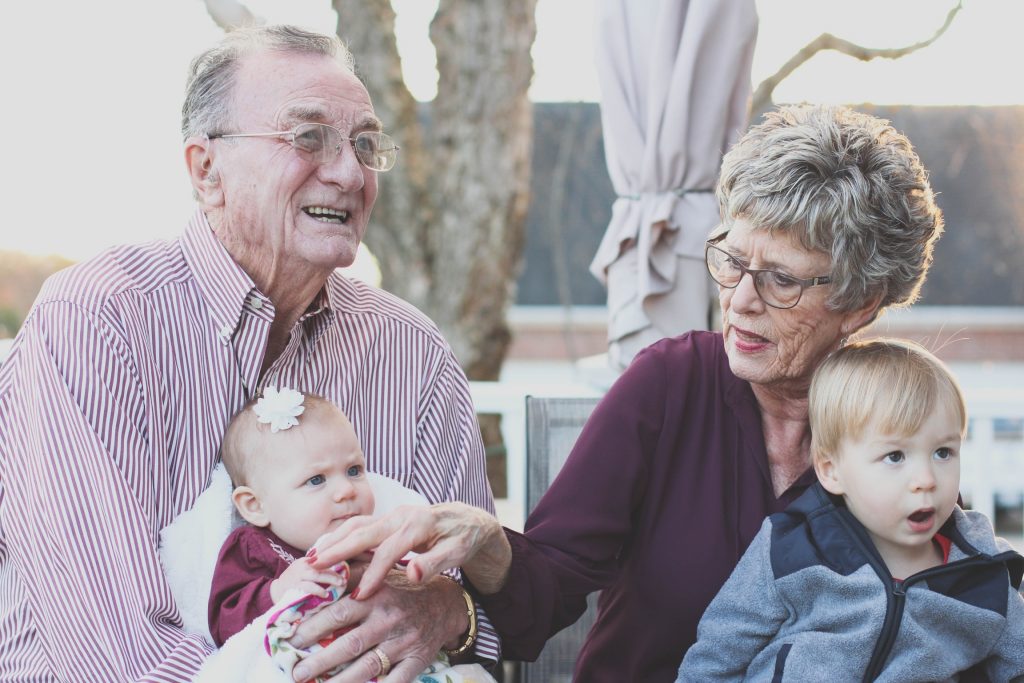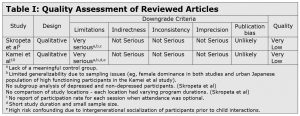Intergenerational Programs’ Effect on the Mental Health of the Elderly
Abstract
Background: Mental health disorders, such as late-life depression and dementia, are a growing problem the aging population faces. Common treatment medications carry with them many negative aspects. Intergenerational programs are being sought out as an alternative or additional therapy to medication. These programs are focused on strengthening intergenerational relationships, improving health and quality of life, and restoring generational roles. This review looks at the effect intergenerational programs have on the mental health of the aged population.
Methods: An exhaustive search of available medical literature was performed using MEDLINE-Ovid, Web of Knowledge, and CINAHL. Keywords included: intergenerational relations, aged or elderly, and mental health. The quality of evidence was assessed using GRADE.
Results: Two observational qualitative studies remained after duplicates were eliminated and eligibility criteria were applied. Both studies evaluated elderly exposed to intergenerational programs watching for trends as exposure rates increased. One study showed a decrease in depressive symptoms in a depressed subgroup of older adults and an increase in self-rated mental health. The other study showed a decrease in vitality of the elderly. Both studies showed positive attitudes towards the program via participant interviews. Overall quality of the studies was very low and additional research is needed.
Conclusion: Intergenerational programs may be beneficial to the mental health of the aged population and provide an alternative resource for families and clinicians. These programs carry virtually no harm, are low cost, and may possess the capability to improve mental health of the elderly. Until more research is completed this therapy should be used as alternative or adjunctive to common medications and practices.
Keywords: Intergenerational relations, aged, elderly, mental health, depression, late-life depression, dementia
(Click on image to enlarge.)
REVIEWED STUDIES:
Skropeta CM, Colvin A, Sladen S. An evaluative study of the benefits of participating in intergenerational playgroups in aged care for older people. BMC Geriatr. 2014;14:109-2318-14-109.
Kamei T, Itoi W, Kajii F, Kawakami C, Hasegawa M, Sugimoto T. Six month outcomes of an innovative weekly intergenerational day program with older adults and school-aged children in a Japanese urban community. JAPAN J NURS SCI. 2011;8:95-107 13p.
AUTHOR: Alysia McDonald graduated from Pacific University, School of PA Studies in August 2017.


